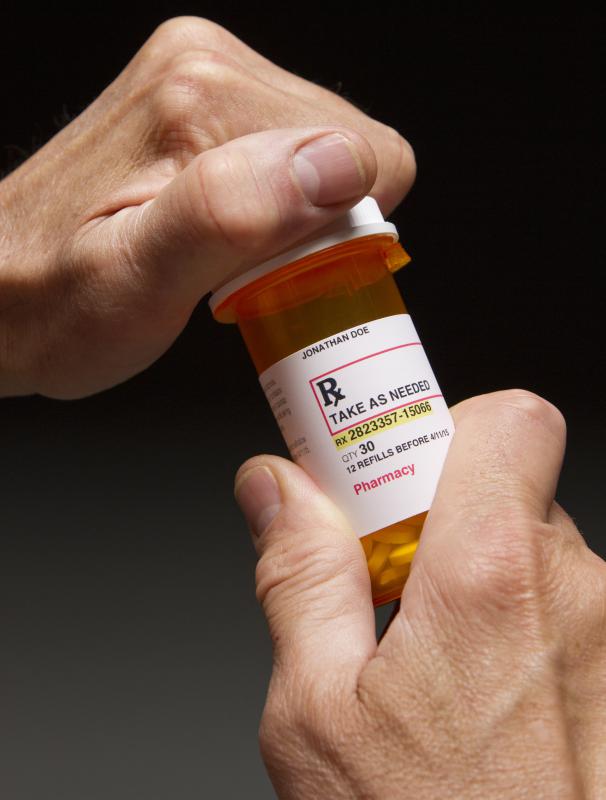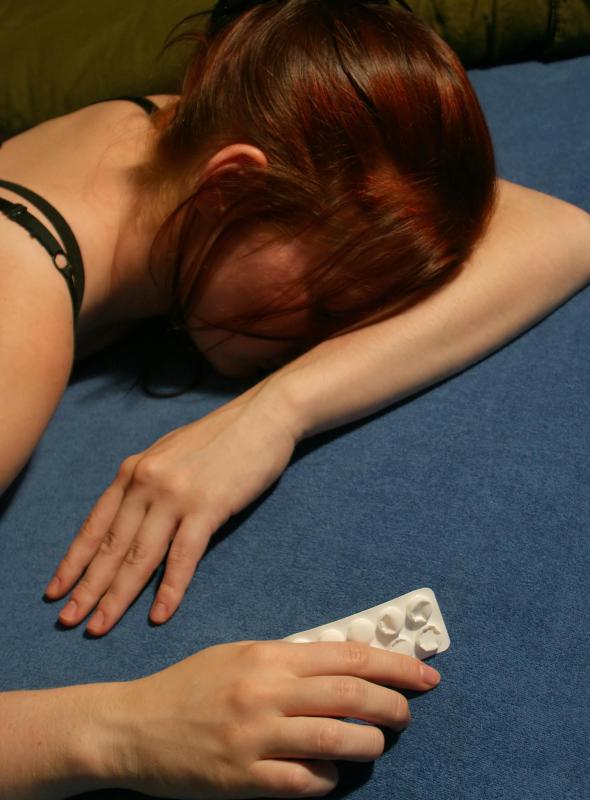At WiseGEEK, we're committed to delivering accurate, trustworthy information. Our expert-authored content is rigorously fact-checked and sourced from credible authorities. Discover how we uphold the highest standards in providing you with reliable knowledge.
What Is Dextropropoxyphene?
Dextropropoxyphene is part of the opiate group of drugs. The medication alleviates mild or medium pain and is also known as propoxyphene. After studies were performed on the safety of the drug, dextropropoxyphene was removed from the market in countries such as the U.S. and all of the countries in the European Union.
Opiates work by binding to receptors in the brain and causing the brain to sense less pain than it should. It alleviates both short-term and long-term pain. Though not as strong as some of the other members of the opiate group, this drug was not sold over the counter.

The U.S. Food and Drug Administration first approved the drug in 1957. A generic drug, no company owns the right to manufacture dextropropoxyphene. Therefore, it may be produced by many pharmaceutical companies and marketed under several different brand names. It can be present as the sole active ingredient of a medicine or in combination with another substance, such as paracetamol.

Previously recognized side effects of the drug include headache, gastrointestinal symptoms, and skin rashes. Hallucinations, dizziness, and mood issues could also occur. The reason the FDA removed the drug from the American market in 2010 was that the drug could also affect the heart. Changes in heart rhythm caused by the drug could potentially be fatal, especially as the drug was relatively common, and millions of people were prescribed it on an annual basis. Drug manufacturers voluntarily agreed to withdraw their products.

The European Union decided in 2009 to ask dextropropoxyphene manufacturers to remove the drug from sale in member countries. The decision was primarily based on the fact that the drug was a cause of accidental overdoses and suicides. The amount of the medication needed to control pain effectively was not much less than the amount needed to overdose, and it was easy to accidentally take too much. As well as this consideration, dextropropoxyphene was not any better at relieving pain than safer painkillers, such as paracetamol or ibuprofen.

Although the drug has been withdrawn in some countries, it may still be found on sale if the phasing out of the medication is not complete. Examples of dextropropoxyphene medication brand names include Darvocet®, Dolene®, and Darvon®. As it is not under patent, the drug may also be sold simply as dextropropoxyphene or propoxyphene. Pharmacies may be able to dispose of unwanted drugs safely.
AS FEATURED ON:
AS FEATURED ON:














Discuss this Article
Post your comments